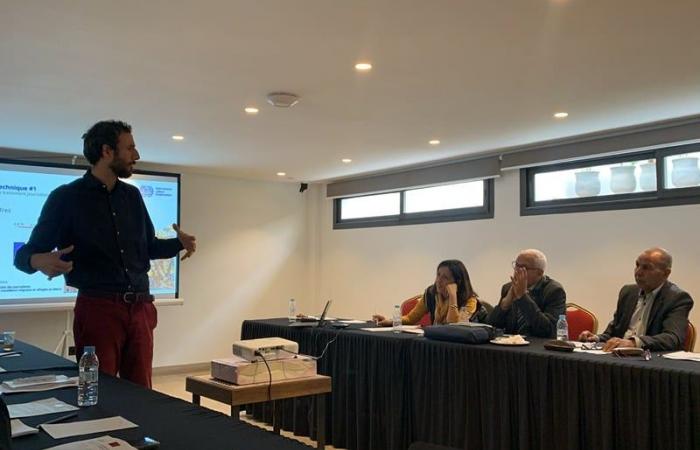The media plays a crucial role in defending the rights of migrants, exposing the abusive practices and denials of human and labor rights that persist in the shadows. By revealing these realities, journalists become catalysts for change, helping to influence not only public opinion but also policies.
As part of the application of their joint advocacy strategy for the protection of migrant and refugee workers, the most representative unions, namely the Moroccan Labor Union (UMT), the General Union of Moroccan Workers (UGTM ), and the Democratic Confederation of Labor (CDT), are joining forces with the International Labor Office (ILO) to organize a training session on November 19 and 20 in Rabat for the benefit of journalists. This event is exclusively focused on “Strengthening the capacities of journalists: Promoting the rights of migrant workers and refugees in Morocco”.
This training aims, above all, to demystify the commitment made by social partners to actively promote the rights of migrant workers and ensure their effective implementation. It intends to equip participants with the technical skills necessary to address these subjects in the media with finesse and precision.
In addition, the training highlighted the genesis of the joint advocacy strategy for the protection of migrant workers and refugees, its strategic objectives and the challenges linked to its implementation, while identifying the crucial role that the media must play in this context.
An overview of the current context was notably offered by experts in labor migration, including Charles Autheman and Mohamed Belarbi, who illustrated the contemporary challenges linked to the protection of the rights of migrant workers, such as access to labor market and social protection, and labor market mediation.
According to Rahim Amraoui, Labor Migration Focal Point in Morocco (ILO), the training encourages the generation of a new narrative, an in-depth understanding of how public narratives are constructed and influence misperceptions, stereotypes and cognitive biases surrounding labor migration. By disseminating reliable information and deconstructing biased narratives, journalists can help combat discrimination and xenophobia.
He explains that the media are presented as a key tool in preventing deception during the recruitment and labor migration process. Through rigorous, ethical and transparent journalism, journalists can ensure that potential migrants make informed decisions, rather than based on incorrect information, he says.
The expert states in particular that the influence media on opinion and public policies is recognized. By relying on substantiated arguments, journalists can shape debates on fair migration and decent work, while exposing abuses and denial of fundamental rights. Such engagement can benefit the improvement of legal frameworks and the strengthening of public policies in both countries of origin and destination.






